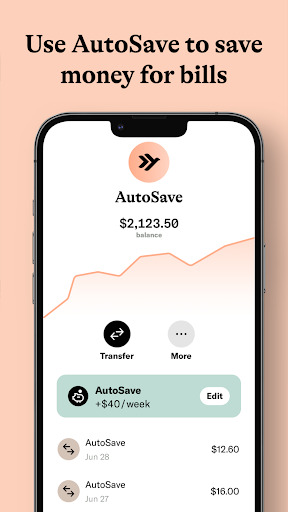Popular Now
What Does Empowerment Mean?
Empowerment is the process of enabling individuals or groups to take control of their circumstances and achieve their goals. It involves fostering confidence, providing resources, and creating an environment where people can thrive.The Origins of Empowerment
Empowerment as a concept has roots in various philosophical and social movements, particularly those focused on human rights and equality. Historically, it has been used in contexts related to social justice, aiming to uplift marginalized groups by giving them the tools and opportunities to improve their lives.Modern Definitions of Empowerment
In contemporary settings, empowerment is often associated with leadership, personal development, and organizational behavior. It involves giving people the authority, tools, and responsibility to make decisions that affect their lives or work, thereby increasing their confidence and sense of ownership.The Importance of Empowerment in Personal Life
Empowerment in personal life is critical for self-fulfillment and happiness. It allows individuals to take charge of their own lives, make decisions that reflect their values, and pursue goals that lead to personal growth.Self-Empowerment: The First Step to Personal Growth
Self-empowerment is about recognizing one’s strengths and capabilities and using them to overcome challenges. It involves setting personal goals, developing a growth mindset, and cultivating resilience in the face of adversity.- Setting Goals: Clear and achievable goals are essential for empowerment. They provide direction and a sense of purpose.
- Developing a Growth Mindset: This mindset is about believing that abilities can be developed through dedication and hard work. It is the foundation of empowerment.
- Building Resilience: Empowerment also involves the ability to bounce back from setbacks, which is crucial for long-term success.
Empowerment Through Knowledge and Skills
Knowledge is power. Empowerment is closely linked to acquiring new skills and knowledge that can be applied to various aspects of life.- Continuous Learning: The pursuit of knowledge should be a lifelong endeavor. Continuous learning helps individuals adapt to changes and seize new opportunities.
- Skill Development: Empowerment often involves acquiring new skills that enhance one’s ability to perform tasks and solve problems efficiently.
Empowerment in the Workplace
In the workplace, empowerment is a key factor in employee satisfaction, productivity, and organizational success. Empowered employees are more likely to take initiative, innovate, and contribute to the overall goals of the organization.The Role of Leadership in Empowering Employees
Leaders play a crucial role in fostering an empowering environment. They need to provide the right resources, support, and opportunities for employees to excel.- Delegation: Effective leaders delegate authority and responsibility, allowing employees to take ownership of their tasks.
- Encouragement: Positive reinforcement and recognition of achievements are vital for maintaining an empowered workforce.
- Mentorship: Leaders who mentor and guide their employees help them develop the confidence and skills needed for empowerment.
Creating a Culture of Empowerment
A culture of empowerment is one where employees feel valued, trusted, and motivated to contribute to the organization’s success.- Open Communication: Encouraging open dialogue between employees and management fosters a sense of belonging and empowerment.
- Inclusive Decision-Making: Involving employees in decision-making processes ensures that they feel their contributions are valued.
- Recognition and Rewards: Recognizing and rewarding employees for their contributions reinforces a culture of empowerment.
Empowerment in Education
Empowerment in education involves providing students with the tools and opportunities to take control of their learning journey. It encourages critical thinking, creativity, and a sense of responsibility for one’s own education.Student-Centered Learning
Student-centered learning is an approach that places the learner at the heart of the educational process. This method empowers students by allowing them to take an active role in their education.- Active Participation: Students are encouraged to participate actively in their learning, which helps them develop critical thinking and problem-solving skills.
- Personalized Learning: Tailoring education to meet individual students' needs and interests fosters a sense of ownership over their learning.
Empowering Educators to Empower Students
Educators need to be empowered themselves to effectively empower their students. This includes providing them with the necessary resources, training, and support to create an empowering learning environment.- Professional Development: Continuous professional development helps educators stay informed about the latest teaching strategies and tools.
- Supportive Environment: A supportive school culture that values and recognizes teachers' efforts is crucial for fostering an environment where empowerment can thrive.
Empowerment in Communities
Community empowerment involves enabling individuals and groups to take action on issues that affect their communities. It is a powerful tool for social change and improving quality of life.Building Stronger Communities Through Empowerment
Strong communities are built on the collective empowerment of their members. This involves encouraging participation, fostering collaboration, and supporting local initiatives.- Community Involvement: Encouraging community members to get involved in local issues leads to more resilient and self-reliant communities.
- Collaboration: Collaboration among community members and organizations is key to addressing common challenges and achieving shared goals.
Empowerment and Social Change
Empowerment is often at the heart of social change movements. By empowering individuals and groups, communities can address social inequalities and work towards a more just society.- Advocacy and Activism: Empowered communities are more likely to engage in advocacy and activism, leading to significant social changes.
- Access to Resources: Providing communities with access to resources, such as education and healthcare, is essential for empowerment and social change.
Reviews: Evaluating the Impact of Empowerment
Reviews and evaluations are crucial for understanding the impact of empowerment initiatives. They provide insights into what works, what doesn’t, and how empowerment can be improved.The Role of Feedback in Empowerment
Feedback is a vital component of empowerment. It helps individuals and organizations understand their strengths and areas for improvement.- Constructive Feedback: Constructive feedback provides specific, actionable insights that can help individuals grow and improve.
- Continuous Improvement: Regular reviews and feedback loops ensure that empowerment initiatives remain effective and relevant.
Measuring Success in Empowerment Initiatives
Success in empowerment initiatives can be measured in various ways, including increased confidence, improved performance, and positive social impact.- Quantitative Metrics: These include measurable outcomes such as increased productivity, higher satisfaction rates, and improved academic performance.
- Qualitative Metrics: These include personal stories, testimonials, and case studies that provide deeper insights into the impact of empowerment.
Conclusion: The Future of Empowerment
Empowerment is an ongoing process that requires commitment, resources, and continuous effort. As we move forward, the importance of empowering individuals, communities, and organizations will only grow. By fostering empowerment, we can unlock potential, drive innovation, and create a more just and equitable world.Key Takeaways
- Empowerment is crucial for personal growth, organizational success, and social change.
- Leadership and a supportive culture are essential for empowerment in the workplace.
- Education that empowers students fosters lifelong learning and critical thinking.
- Community empowerment leads to stronger, more resilient communities.
- Reviews and feedback are key to understanding and improving empowerment initiatives.
-
Developer
Empower Finance
-
Category
Finance
-
Version
5.95.0.560
-
Downloads
1M
Pros
👍 The Empower: Instant Cash Advance application offers several advantages for users:
👍 1. Quick and convenient access to cash: One of the main advantages of Empower: Instant Cash Advance is that it provides users with instant access to cash. With just a few taps on your phone, you can request a cash advance and receive the funds directly into your bank account. This can be particularly beneficial during unexpected financial emergencies or when you need extra cash for immediate expenses.
👍 2. No credit checks or paperwork: Unlike traditional borrowing options, Empower: Instant Cash Advance does not require any credit checks or extensive paperwork. This means that individuals with less-than-perfect credit history or those who prefer not to go through the lengthy process of traditional loan applications can still access the funds they need. The application process is streamlined and hassle-free, making it a convenient option for many.
👍 3. Transparent and flexible terms: Empower: Instant Cash Advance provides clear and transparent terms for borrowers. You’ll know exactly how much you’re borrowing, the associated fees and repayment schedule, and any other terms and conditions. This allows users to make informed decisions about their borrowing options and avoid any hidden surprises. The flexibility in repayment options also allows borrowers to choose a repayment plan that suits their financial situation.
Cons
👎 1. Limited availability: Empower: Instant Cash Advance may not be available to all users as it may only be accessible in certain countries or regions. This can limit the number of people who can benefit from this service.
👎 2. High fees and interest rates: Like any cash advance or payday loan service, Empower: Instant Cash Advance may charge high fees and interest rates. This can significantly increase the cost of borrowing money and make it difficult for users to repay the borrowed amount.
👎 3. Potential for debt cycle: If not used responsibly, using Empower: Instant Cash Advance can lead to a debt cycle. This is because users may find themselves relying on this service regularly to cover their expenses, which can result in accumulating debt and financial hardship in the long run.






















































